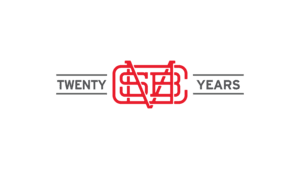Automotive Automation Services
Automation Intelligence has been helping automotive OEMs and suppliers increase their efficiency and bottom line with automotive automation. Find out how automation in automotive manufacturing can help your business increase efficiency, quality, and safety.
What is Automation in Automotive Manufacturing?
Automation enhances automotive production by integrating robots for efficiency, safety, and increased production. It’s used in welding, assembly, inspection, and testing, offering growth and safety for workers. With its adaptability and ongoing evolution, automotive automation opens up new possibilities for optimizing vehicle manufacturing processes.
Automotive Automation Solutions
In the automotive industry, automation is revolutionizing how vehicles are designed, manufactured, and assembled. From the intricate engineering of engine components to the precise installation of interior finishes, automation technologies are at the forefront of enhancing efficiency, quality, and safety. Here are a few applications where Automation Intelligence can help:
Powertrain Applications
Automation Intelligence provides a variety of solutions for powertrain applications, encompassing material handling, vision systems, conveyance, and robotics. Our offerings span from basic operator assist stations to completely automated production lines. These applications optimize efficiency and precision in assembling and testing powertrain components, ensuring high-quality output and performance.
Body Assembly Applications
Automotive body assembly automation streamlines tasks such as welding, material handling, and assembling auto body parts. This allows manufacturers to reduce labor costs and minimize rework, while enhancing quality and consistency through the integration of robotics, vision systems, and software. Additionally, we stand at the forefront of body shop design innovation, utilizing EPLAN and AutoCAD.
Paint & Seal Applications
Paint and sealer systems for automotive OEMs and tier suppliers can dramatically boost productivity and quality. Automation Intelligence can implement sealer applications such as interior and exterior seam sealer solutions.
Benefits of Automotive Factory Automation
Automotive factory automation offers numerous benefits that significantly impact efficiency, quality, and overall competitiveness. Here are some key advantages:
- Increased Production Efficiency: Automation enables 24/7 operation without the need for breaks, shifts, or downtimes, leading to higher output rates and faster production cycles.
- Enhanced Product Quality: Robots and automated systems perform tasks with high precision and consistency, reducing the likelihood of defects and ensuring that every product meets stringent quality standards.
- Cost Reduction: While the initial investment might be high, automation reduces labor costs over time and minimizes waste through improved accuracy and material utilization, leading to substantial savings.
- Improved Worker Safety: By taking over dangerous or repetitive tasks, automation minimizes the risk of workplace injuries, creating a safer environment for factory workers.
- Greater Flexibility: Automated systems can be quickly reprogrammed to accommodate changes in production or to manufacture different products, allowing for easier adaptation to market demands.
- Reduced Lead Times: Automation streamlines the production process, from assembly to inspection, significantly reducing the time from order to delivery.
- Enhanced Scalability: Factories can scale production up or down without the proportional need for new hires or extensive training, making it easier to respond to fluctuations in demand.
- Data Collection and Analysis: Automated systems generate vast amounts of data that can be analyzed to optimize production processes, predict maintenance needs, and improve overall operational efficiency.
- Sustainability: Automation can contribute to sustainability efforts by optimizing energy use and reducing waste, making production processes more environmentally friendly.
- Global Competitiveness: Automation helps manufacturers meet the high standards of productivity and quality required to compete in the global market, positioning them as leaders in their industry.
By leveraging these benefits, OEMs and suppliers can significantly improve their operational efficiency, product quality, and market responsiveness, securing a competitive edge in the fast-paced automotive industry.

